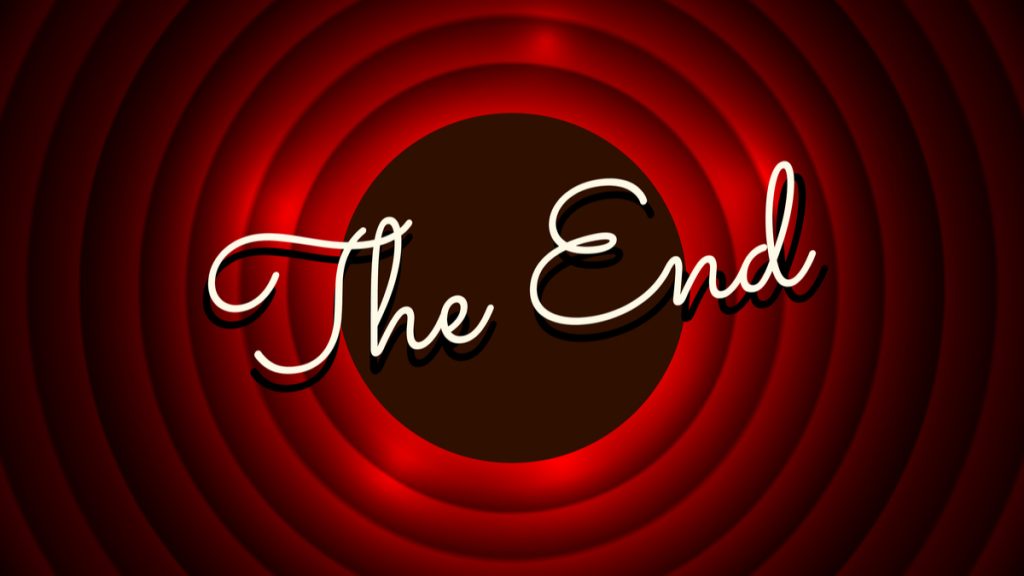Christ is the “End” of the Law or Christ is the “Goal/Culmination” of the Law – Romans 10.4
Author: Bobby Valentine | Filed under: Exegesis, Hebrew Bible, RomansI begin with a quote from Karl Barth in a sermon he gave on Psalm 119.67, “Now I Keep Your Word,” as he was leaving Nazi Germany because of his opposition to Hitler.
“And now THE END has come … So listen to my piece of advice: exegesis, exegesis, and yet more exegesis! … Keep to the Word, to the Scripture that has been given to us.” (my emphasis)
Exegesis tests all. But exegesis is what so few seem to want to actually do. And if exegesis reveals weakness in some previous belief many will choose their previous belief over what we now know the text to say. Exegesis will rewrite our assumptions.
Look at some attitudes toward the Old Testament, as Melito of Sardis taught us to refer to the Hebrew Bible. It is stunning, to me, some preachers talk about the Hebrew Bible. I recently posted something about the “Old Testament” and was chastised for “going to the shadows,” “Christ delivered us from the that which is against us,” “that has no authority for us,” “are you a Jew,” “Christ is the end of the law.”
All of those statements are direct quotes. Much of the rhetoric sounds like it is coming from non-believers. And sometimes they even use a “biblical” phrase but in ways the NT writer simply does not (this is true on the “shadows” rhetoric from Hebrews and “Christ is the end of the law” from Romans). It is amazing how some respond to any positive exposition of the Hebrew Bible. I simply do not get it. But their distortion of the Hebrew Bible has resulted in their distortion of the New Testament writings themselves which have been divorced from their Scriptural context.
So my critic quoted “Christ is the end of the law (Rom 10:4)” and then added this commentary “the Old Testament can only be understood in terms of the New Testament.”
While I believe that Jesus is the pinnacle of God’s revelation to us, the Gospels themselves and the rest of the New Testament dares to say that it is Jesus and the Gospel that must be understood in terms of the Old Testament not the other way around. In fact they claim the Faith once delivered cannot be understood apart from the Hebrew Bible.
“For I delivered unto you that which is first importance:
that Messiah died for our sins,
IN ACCORDANCE WITH THE SCRIPTURES
and that he was buried,
and that he was raised on the third day
IN ACCORDANCE WITH THE SCRIPTURES
(1 Cor 15.3-4)
“for the gospel of God, which he promised before hand
through his prophets IN THE HOLY SCRIPTURES,
the gospel concerning his Son,
who was descended from David“
(Romans 1.2-3).
Matthew, the Gospel that opens the “New Testament” opens with a “book of genesis” that looks an awful lot like the material in the last book of the Hebrew Bible, Chronicles. Its almost like a Third Chronicles in fact. Jesus simply cannot be separated from the genealogy of Israel. According to Matthew and Paul, “the Gospel” is according to the “Old Testament” not the Old Testament according to the New.
To be “in accordance with” does not mean simply, or even primarily, that Jesus was predicted. Rather the message of the Gospel is in “harmony” and “in line with” and “conforms” with the Torah, the Psalms and the Prophets something that Paul makes abundantly clear as he goes thru Romans itself.
So while some people are bothered (for some unknown reason) that we might go study the Hebrew Bible, the apostles say you cannot preach the Gospel unless it is “according to the Scriptures” because the Gospel is about an Israelite King.
This brings us to our “proof text” in Romans 10.4. Barth told us “exegesis” and more “exegesis.” My critic quotes a translation that reads, “Christ is the END of the law.” In his interpretation “end” means “do away with” or “termination,” “get rid of.” But this is an assumption.
The word “end” can mean the following according to the dictionary and thesaurus: intention, intent, purpose, design, aim, object, goal, culmination. Now stick any of these synonyms in Romans 10.4 and see what happens to the unproved assumption?
“Christ is the purpose of the law”
“Christ is the design of the law”
“Christ is the object of the law”
“Christ is the goal of the law”
“Christ is the CULMINATION of the law”
Each of those sound radically different than Jesus terminated, did away with, got rid of the law.
The last possibility is the translation of the TNIV/NIV in fact. Christ is the “end” of the law in the sense that he its object, goal and culmination. The Messiah is the culmination not its repudiation.
The message of the Messiah/Christ is “according to the Scriptures,” he did not come to get rid of the Scriptures.
We do not have to apologize when we study or preach the Hebrew Bible. In fact we should be apologetic that we do not have the same view of them that Jesus did, that Peter did, that Paul did, that John did, and that the Holy Spirit does.
“Christ is the goal of the law” (Romans 10.4, CEB; See also the Kingdom New Testament)

May 31st, 2021 at 11:30 am
Thank you, Bobby. The New Testament writers alluded to and quoted the Hebrew Bible in ways that reveal familiarity (and assume familiarity by most readers) but also regard it as useful for instruction, not just illustration. I vividly remember a startled member’s facial expression when I told him that I was preaching through Zephaniah the first three Sundays of December. Those Scriptures lay a foundation that we, as you emphasize, if we do not build upon it, will regret our neglect.